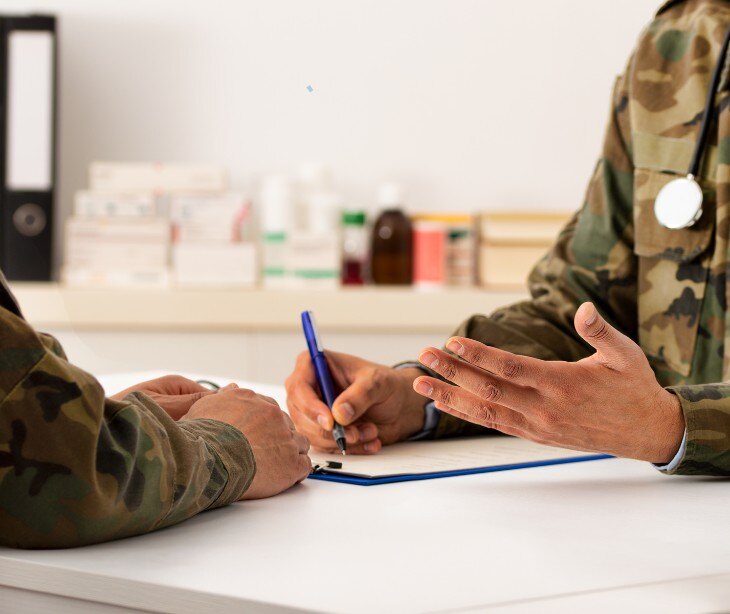
HIPAA is a legal doctrine focused on ensuring the privacy and security of patient data. The regulations protect all healthcare organizations, including military health facilities.
What is the MHS?
The Military Health System provides medical care to all active-duty military members, their families, and retirees. It is considered “one of America’s largest and most complex health care institutions, and the world’s preeminent military health care delivery operation.” Structurally, the MHS is organized under the Department of Defense and operates through regional commands that ensure medical services are effectively delivered across all branches.
Collaboration between the MHS and civilian healthcare providers is prominent during large-scale emergencies such as pandemics or natural disasters. In these cases, military medical resources supplement civilian efforts to manage high patient inflows and specialized care demands. Partnerships are supported by legislation and executive directives that allow the sharing of resources, expertise, and facilities. Case studies, such as the response to Hurricane Katrina and the COVID-19 pandemic, highlight the effectiveness of this collaborative approach, where military-civilian coordination has led to improved patient outcomes.
HIPAA in the MHS
HIPAA is responsible for securing protected health information (PHI), including any identifying data, information related to health or payment, or related information held by business associates. To help the Military Health System comply with HIPAA's regulations, the Defense Health Agency (DHA) has established a dedicated Privacy and Civil Liberties Office.
The office enforces the HIPAA Privacy Rule, which safeguards PHI, limits its unauthorized use, and gives control over health information. The HIPAA Security Rule guides how electronic PHI (ePHI) should be secured to prevent breaches. In cases of unauthorized access or disclosures, the HIPAA Breach Notification Rule outlines how the DHA informs affected individuals and rectifies the situation.
At the forefront of these efforts is the Chief of the DHA Privacy Office, who serves as the HIPAA Privacy Officer and Security Officer. This person has authority over HIPAA Privacy and Security programs at the DHA, ensuring the agency meets HIPAA’s requirements.
Best practices in MHS
- When transmitting PHI, whether internally or with external partners, use secure communication channels, such as HIPAA compliant email.
- In military settings, obtaining informed consent involves clear, understandable explanations of how PHI will be used in medical operations.
- Implementing a zero-trust security model means never assuming trust and always verifying identities. Each attempt to access the system must be authenticated, authorized, and continuously validated for security configuration and posture before access is granted.
- MHS organizations must use sophisticated anomaly detection tools to monitor for unusual access patterns or unauthorized attempts to access PHI. These systems use machine learning algorithms to detect deviations from normal behavior, triggering alerts for immediate investigation.
See also: Top 12 HIPAA compliant email services
FAQs
What is the role of the MHS?
The MHS provides healthcare to active-duty service members, retirees, and their families across all branches of the US military.
What is the role of the DHA?
The DHA oversees the delivery of medical services within the MHS.
What is the military exemption rule?
The military exemption rule allows certain health information and privacy regulations, such as HIPAA, to be modified or waived under specific military circumstances to ensure operational readiness and effectiveness.
Subscribe to Paubox Weekly
Every Friday we'll bring you the most important news from Paubox. Our aim is to make you smarter, faster.



